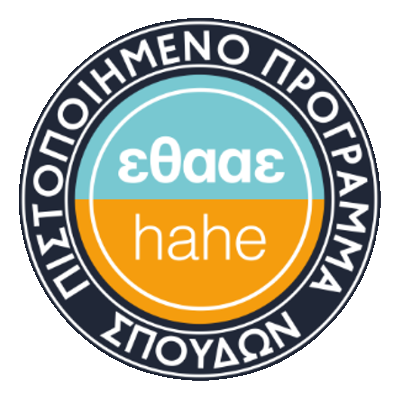Excellence in research is the major aim of the research policy in the Department of Electrical and Electronics Engineering. Academic staff members are highly qualified and maintain an intensive involvement in research and development activities, both at the national and the European/international scale, either as prime researchers or project leaders or coordinators. These research and development activities are aimed at state-of-the-art science and technology in the field, expand to cover the whole field of electrical and electronics engineering and have produced a long record of publications in refereed international scientific journals and conference proceedings. The Department is systematically pursuing the strengthening of the departmental research structures (Research Laboratories) so that each one of them has the ‘critical mass’ to further advance research, to increase qualitative and quantitative research indices and to secure funding for future activities. The vision of the Department regarding research is to establish itself as a productive and recognizable agent and partner in the international research environment and the contemporary science and technology landscape.
Research is supported by academic and other staff, by under- and post-graduate students and PhD candidates and by an extended network of national and international research collaborations and exchanges that is being built based on personnel initiatives.
The research policy of the Department extends along three major axes, aiming to cover:
(a) the major and “classic” areas of electrical and electronics engineering such as energy and power, communications and networks/internets, computer systems, embedded systems, micro- and nano-electronic technologies, etc.,
(b) emerging areas of contemporary engineering research, which constitute fields of cross-disciplinary cooperation, such as smart grids, organic electronics, wearable electronics, multifunctional materials, green / environmentally-friendly technologies, renewables, etc., as well as
(c) ‘horizontal’, across-disciplines research areas such as Information and Communication Technologies for Education, Total Quality Management, Operational Research, Science and Technology history issues and scientific / professional Ethics issues.
Undergraduate and graduate students are strongly encouraged to participate in research activities through a close interaction with the departmental MSc and PhD programs.
Research is organized into eleven (11) Research Laboratories that have been formally instituted within the Department and whose infrastructure and equipment supports all related activities. Fund securing and fund raising for the update and upgrade of the Laboratories equipment is an expressed policy and priority of the Department. A further plan is the quality assurance certification of selected Laboratories in order to offer quality services to external entities / organizations. All research and research-related activities are supported by UniWA through the institutional Special Account for Research Funds.



